Leave the Brussels bubble behind, and think deeper about science and technology with our recommendations for books, podcasts and articles

Photo credits: Ben White / Unsplash
The EU science policy world is still digesting last month’s proposals for the next €175 billion Framework Programme, plans that have set in motion years of haggling over budgets, regulation clauses and committee makeups.
But as Brussels empties for August, and the research bubble decamps to the Riviera, Alps or somewhere further afield, it’s a good time to take a step back and ask: what is all this policymaking and funding for? What kind of scientific and technological future do we want?
Here, Science|Business writers present their favourite novels, non-fiction books, podcasts and in-depth articles of the past year that ask deeper questions about how we do research and innovation, and where this is all leading.
The Framework Programme proposals can wait back at the office; it’s time to think bigger.
Books
Bewilderment, by Richard Powers
This 2021 novel from the Pulitzer Prize-winning author of The Overstory centres on the relationship between astrobiologist Theo and his nine-year-old son, Robin, following the death of Robin’s mother, an animal rights lobbyist. A sensitive child, Robin struggles to comprehend how adults are able to turn a blind eye to the ongoing extinction crisis. When his behavioural issues get him into trouble at school, Robin undergoes an experimental treatment called decoded neurofeedback, drawn from real life, whereby his brain is trained to replicate positive emotional states recorded by previous subjects. Meanwhile, Theo and his colleagues are awaiting the completion of a long-delayed $12 billion space telescope, which they hope will transform their search for life on other planets, but politicians are out to kill the project. The book asks urgent questions such as what happens when science is politicised, why we have a desire to know what else is out there and how to raise a child in a world that’s on the brink of collapse. Martin Greenacre
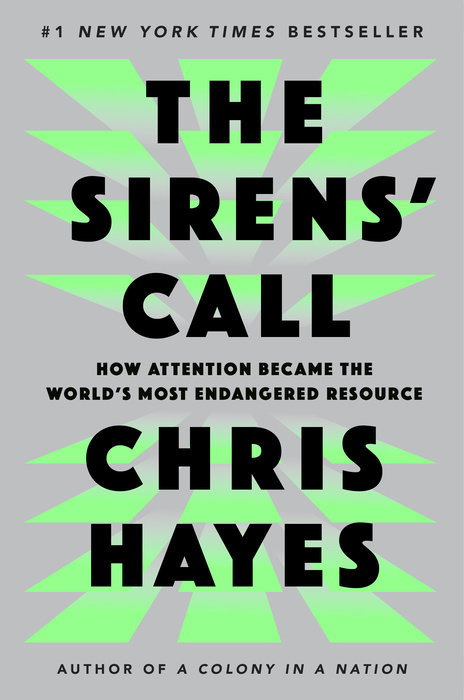 The Sirens’ Call: How Attention Became the World’s Most Endangered Resource, by Chris Hayes
The Sirens’ Call: How Attention Became the World’s Most Endangered Resource, by Chris Hayes
There are plenty of books out there bemoaning how the distracting pull of a smartphone in our pocket has destroyed our concentration. Typically, these reel off reams of worrying numbers about declining mental health, how long teens spend on TikTok and so on. Yet The Sirens’ Call goes much deeper, and draws on Greek myth, the theories of Karl Marx, William James and more to give the reader a more fundamental understanding of how the smartphone revolution has reshaped our economies, societies and lived experience. A US cable news host, Hayes uses his experience as a professional attention-grabber to explain what we’re living through. He’s particularly insightful on how attentional norms that kept our politics reasonably sane, such as debates that forced you to listen to all sides, have been replaced by a mad social media shouting match where the Trumps of this world win out. Researchers may conclude that there is no more urgent challenge than developing new tools to help us keep our phones in our pockets. David Matthews
Competing with the Soviets: Science, Technology, and the State in Cold War America, by Audra J. Wolfe
When the Second World War ended, it was in part thanks to scientific breakthroughs in nuclear physics, which were then translated, with the help of US military funding, into a bomb that devastated Nagasaki and Hiroshima. Then, as the world entered the Cold War, the escalating conflict between the democratic west and the communist Soviet Union kick-started the most intense scientific race in history. Audra J. Wolfe looks at how the US expanded its science system after 1945, as leaders in Washington DC suddenly were willing to allocate large amounts of money to research institutes in nuclear physics and space, but also in “softer” fields such as urban planning, biology, economics and political science. The assumption in the US was that the ideological war between democratic capitalism and authoritarian communism could not be won just by building bigger bombs and sending men to the Moon, but needed a more comprehensive approach to the development of new technologies and ideas. Wolfe’s conclusion is that US science had never really operated in a free zone, outside of politics, but rather the ballooning funding opportunities and freedoms were always shaped by some form of ideology. Florin Zubascu
Towers of Ivory and Steel: How Israeli Universities Deny Palestinian Freedom, by Maya Wind
With Europe horrified by images of devastation and starvation emerging from Gaza, there’s no more pressing, and divisive, question for European academia than whether to continue collaborating with Israel. Towers of Ivory and Steel sets out to overturn the common view in Europe that Israeli universities are mere liberal bystanders to war crimes committed by the Israeli state. The book is a meticulously footnoted polemic, drawing on a multitude of Hebrew sources, by the activist turned researcher Maya Wind, who once served time for refusing to serve in the Israeli miliary. Among other things, it documents how Israeli universities train Israel Defense Forces soldiers and have intertwined their R&D with Israeli weapons firms. Israeli universities, or some at least, have begun to publicly speak out against the country’s actions in Gaza, but Wind’s argument is that they should be judged on their concrete actions, rather than just words. It’s just one side of the argument, of course, but is nonetheless essential reading for any European university leader who wants to make a fully informed decision about their Israel links. David Matthews
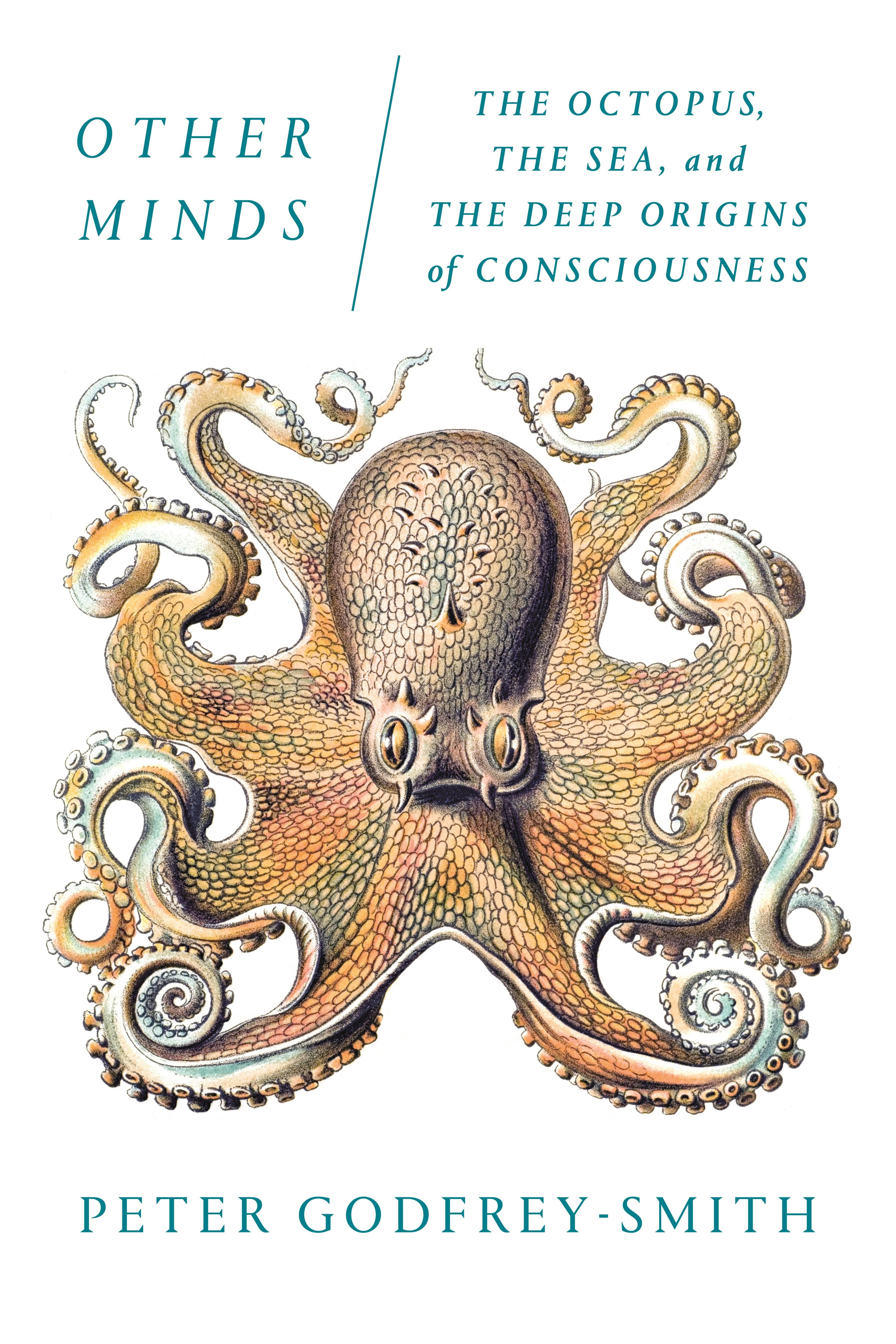 Other Minds: The Octopus, the Sea, and the Deep Origins of Consciousness, by Peter Godfrey-Smith
Other Minds: The Octopus, the Sea, and the Deep Origins of Consciousness, by Peter Godfrey-Smith
This book is what you get when a philosopher dons scuba gear: cogito ergo swim. The author, a professor of philosophy at the University of Sydney, has spent months underwater observing octopus, squid and other cephalopods. These creatures, descended from ancient molluscs, exhibit remarkably smart behaviour. They appear to play, or to act curious or angry. Their brains extend into their limbs. Rather than just reacting to their environment (fight, flight or eat), they appear to have an internal model of the world around them that guides their actions. They are, he says, “an independent experiment” from humans in the evolution of intelligence. In this 2016 book, his undersea observations frame a short history of the philosophy of mind, from Hume to Darwin and beyond. Still, he says, with a cephalopod, “this is probably the closest we will come to meeting an intelligent alien.” Richard L. Hudson
Serving the Reich: The Struggle for the Soul of Physics under Hitler, by Philip Ball
Is science apolitical? Can it remain independent during political and societal shifts? This book says the answer to these questions is, well, it depends what we mean by apolitical and independent. Philip Ball, a former editor at Nature, is looking at the complicated history of physics under the Nazi regime, mostly by following the story of Peter Debye, the Dutch physicist and chemistry Nobel laureate who, in 1934, became director of the Kaiser Wilhelm Institute for Physics in Berlin. Ball has unearthed private letters between the world’s top physicists, from Einstein to Heisenberg, as they started debating how physics in Germany could survive as an independent field of study, while Adolf Hitler’s regime started to purge Germany’s academic institution of Jewish scientists. By taking on a leadership role at the institute, Debye placed himself at the centre of a tense debate that ultimately changed the course of history. Florin Zubascu
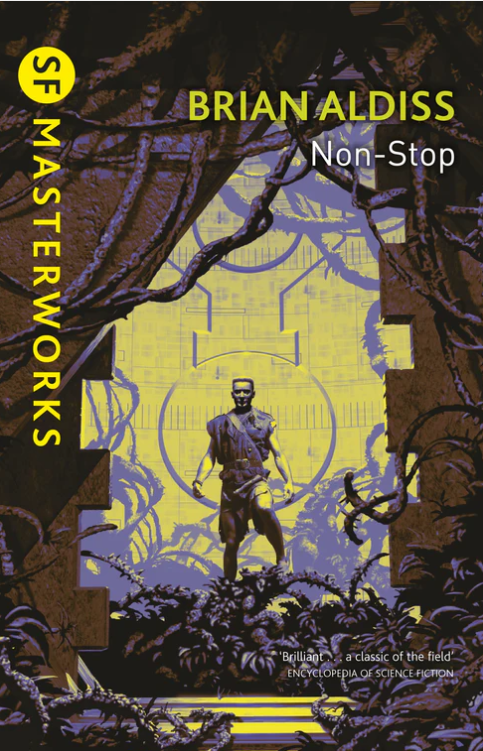 Non-Stop, by Brian Aldiss
Non-Stop, by Brian Aldiss
Sci-fi is for summer; and this book is one of the classics of the genre, with sudden relevance today, as humans (well, Elon Musk) start planning new space voyages. The tale opens in a strange jungle-like community, surrounded by wild plants called “ponics,” swarms of nasty flies and other unpleasant creatures. A small band of dissidents breaks out of the community compound, convinced there is a “control room” somewhere they can seize and improve their lot. As they move from level to level of this strange world, they encounter other communities: intelligent rats, legendary giants and a technologically advanced human colony called The Forwards. We’ll avoid saying more so as not to spoil the plot, but suffice it to say that there’s a lesson here in how not to set up a deep-space mission. This was the debut novel by one of the leaders of the British sci-fi community after WW2. Called Non-Stop in the UK and Starship in the US, it shows, once again, that the US and UK are countries separated by a common language. Richard L. Hudson
Braiding Sweetgrass: Indigenous Wisdom, Scientific Knowledge, and the Teachings of Plants, by Robin Wall Kimmerer
If you want to come at climate change from a different perspective, try this lyrical, personal book that blends indigenous storytelling, botany and memoir into a sweet summer read. With chapter titles such as The Gift of Strawberries, Witness to the Rain and Maple Sugar Moon, the book helps us see the natural world through a lens of gratitude, interdependence, gift giving and receiving, and urges us to imagine and work towards ecological and cultural sustainability. The author is an indigenous American biologist at the State University of New York, and in 2021 The Independent recommended the title as its top choice for climate change books. In the chapter The Epiphany in the Beans, the author writes: “People often ask me what one thing I would recommend to restore the relationship between land and people. My answer is almost always, ‘Plant a garden.’” And if you want a European read in a similar vein, try The Man Who Planted Trees (L'homme qui plantait des arbres), by French author Jean Giono. It is an allegorical tale of one shepherd's solitary obsession to re-forest a desolate valley in the foothills of the Alps. A Canadian film of the book, narrated by Christopher Plummer, won the 1988 Academy Award for best animated film. Diane Fresquez
Podcasts
Air-borne, 99% Invisible
This is a podcast about design, but science enthusiasts should check out this episode on air and its role in building design. Science writer Carl Zimmer walks us through the history of airborne disease, tracing it back to the now-debunked miasma theory, which claimed that bad air caused illness. The theory sounds wacky now, but it offers valuable lessons for dealing with airborne disease today. Scientists have been slow to fully embrace these insights, but it’s a great reminder to keep an open mind when it comes to science. Goda Naujokaityte
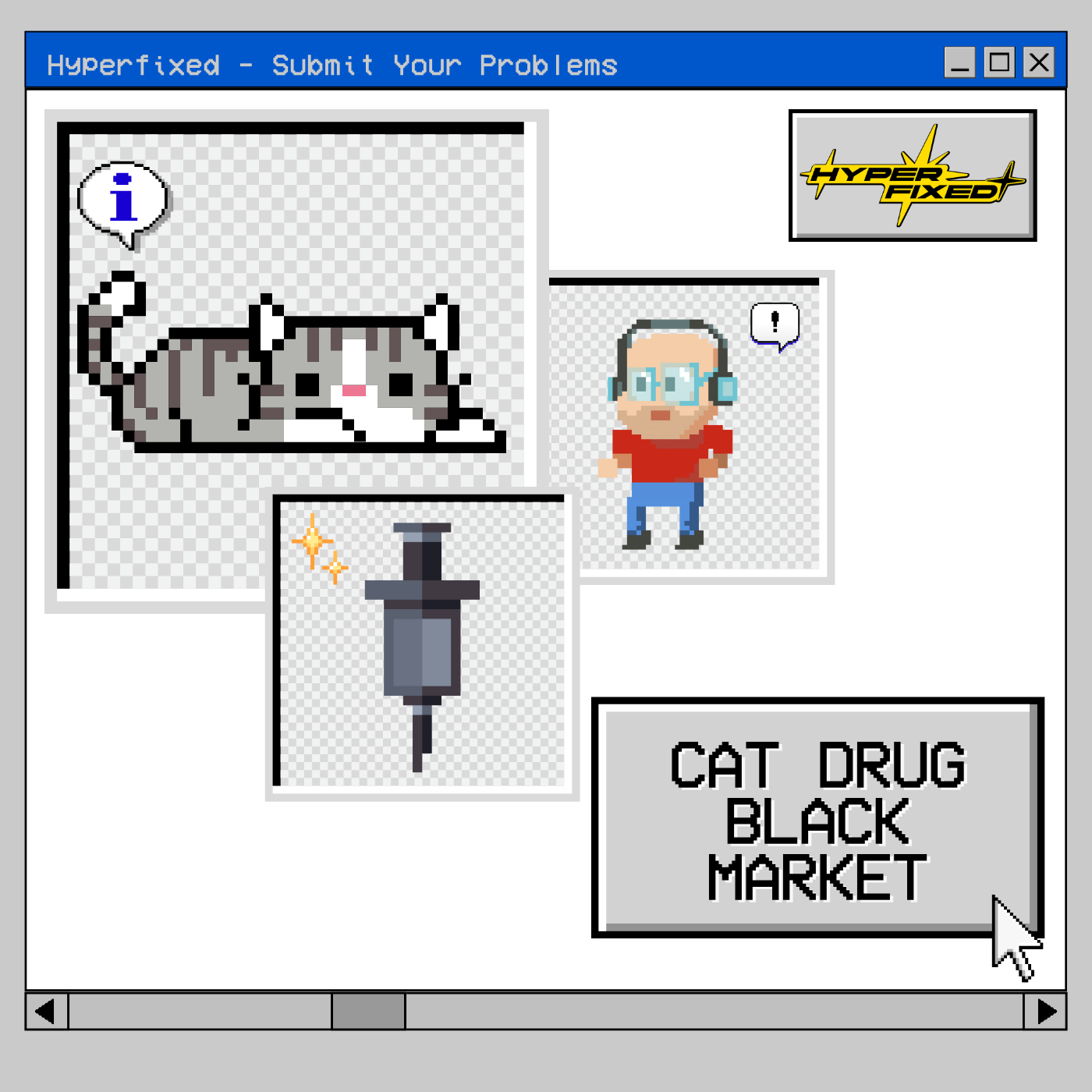 The Cat Drug Black Market, Hyperfixed
The Cat Drug Black Market, Hyperfixed
You may know US journalist Alex Goldman from Reply All, a popular tech and internet podcast that ran from 2014 to 2022. Last year, Goldman launched his new podcast project, Hyperfixed, in which he dives into niche rabbit holes as he attempts to solve listeners’ problems. The Cat Drug Black Market is a three-part series (the final instalment has not yet been released at the time of writing) exploring why vets across America were sending cat owners to Facebook for black market drugs to cure a deadly disease called feline infectious peritonitis. Goldman is a great storyteller and this is a fascinating tale of health, money and betrayal. Martin Greenacre
To Change the Environment, Change the Narrative, Mongabay
Host and associate producer Mike DiGirolamo speaks with Tsering Yangzom Lama, story manager at Greenpeace International, on the importance of reframing the environmental debate beyond facts and figures to share stories which appeal to our morals and emotions. As the Tibetan writer says, “Most people know the difference between right and wrong even if we have disagreements about how to get there.” And so, morally clear stories can move the arena where the debate takes place to a space where you don’t only have the truth, but also the moral authority and backing of stakeholders. This is essential to counter the dominant narratives which support the status quo in favour of the powerful and the wealthy, such as the perpetual growth narrative. Juliette Portala
Want to feel good on the beach? Listen to Volts, a podcast about the green energy revolution, the speed of which astounds even the most optimistic people in the industry. It’s quite US-focused, but there is plenty of globally relevant content. One recent episode explained how combined solar and battery prices are dropping so fast that renewables’ intermittency problems are all but solved in sunny places. Another describes the astonishing take-off of solar in power in Pakistan, where panels have become a common wedding dowry gift. Electric planes, albeit small ones for now, are also beginning to soar. Importantly, the host David Roberts, a former Vox journalist, isn’t an uncritical enthusiast for all green technologies, and asks plenty of probing questions of his guests. He’s a sceptic of green hydrogen, which the EU has bet big on. Volts is a reminder that sustained research and investment in a new technology can change the world for the better, offering us hope on climate change, cheap electricity and energy independence from petrostates. Listen and rejoice. David Matthews
Articles
Would You Get Sick in the Name of Science?, The New York Times
Human challenge trials make us wonder whether it is worth putting someone’s health at risk for the sake of research. Would You Get Sick in the Name of Science? dives into this ethical dilemma through the personal stories of volunteers who willingly get infected to help push medical research forward. The article also reflects on the dark history of past experiments, where people were exposed to diseases without consent, underscoring the critical role of ethics in today’s trials. With the renewed momentum sparked by the COVID-19 pandemic, the piece offers a fascinating look at how these risky studies are reshaping modern science. Eleonora Francica
What Searching For Aliens Reveals About Ourselves, Noema Magazine
Yes, we have found life in space; and no, our governments have not hidden any alien bodies. Because as astrobiologist Michael L. Wong explains, we are all part of life in space. The search for beings other than us shapes how we understand our own stories on Earth. Thanks to modern science, we are understanding the far-reaching consequences of our actions or, as the author writes, “We are the part of Earth that has learned to understand itself.” Learned where we came from, who we are, where we belong and what we must become: “the hope we wish to see in the cosmos.” Juliette Portala
Editor's note: This article was updated 15 August 2025 to correct the biography of Philip Ball.


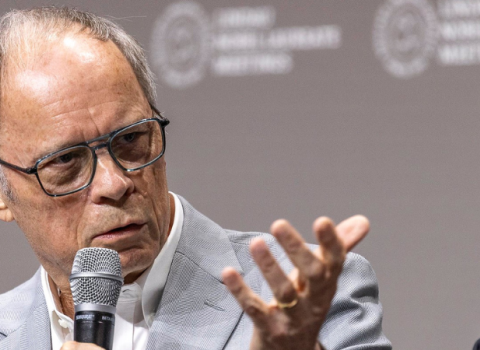
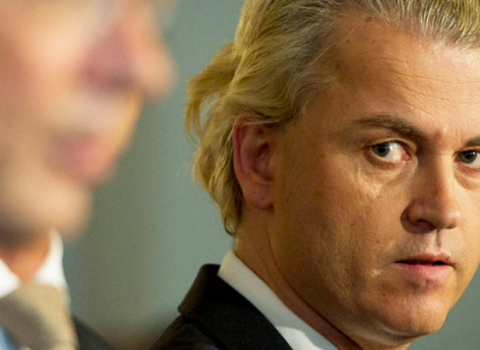

 A unique international forum for public research organisations and companies to connect their external engagement with strategic interests around their R&D system.
A unique international forum for public research organisations and companies to connect their external engagement with strategic interests around their R&D system.